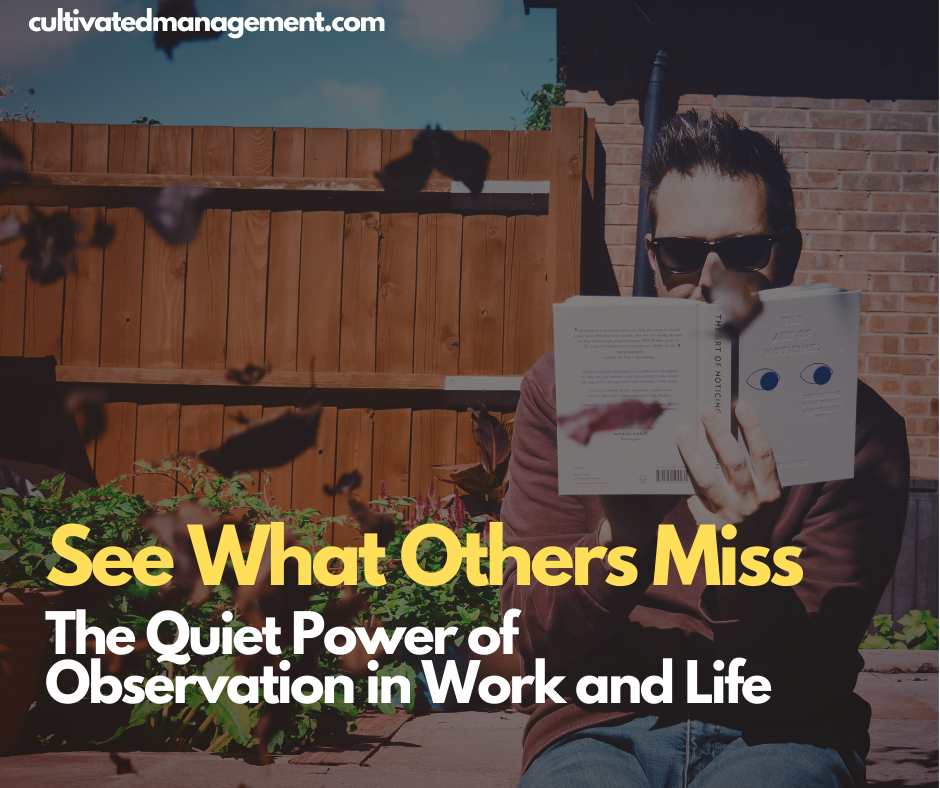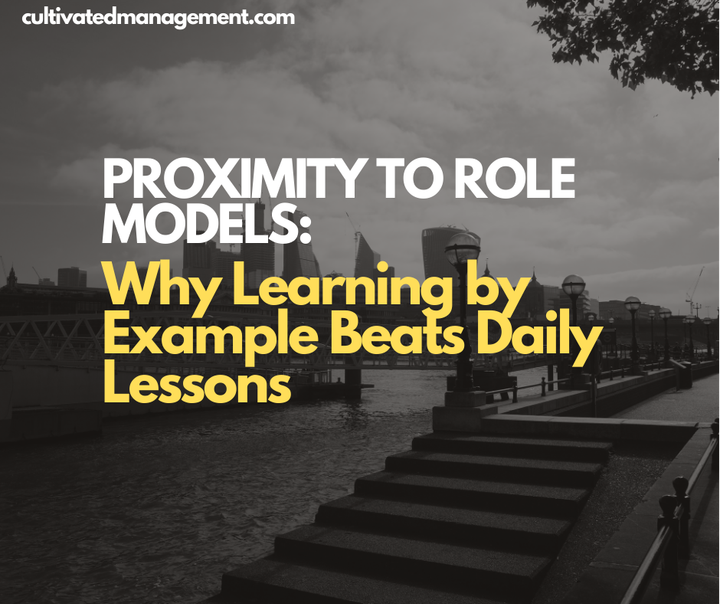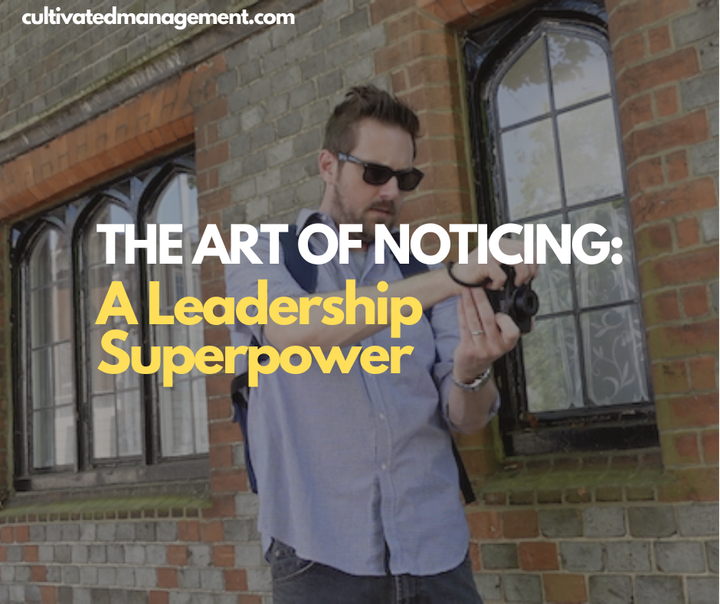See What Others Miss: The Quiet Power of Observation in Work and Life
The most successful managers, leaders and creators see what others overlook. Learn how slowing down, observing, and studying your environment can uncover hidden opportunities, spark new ideas, and improve how work really gets done.

A lot of the success I’ve enjoyed in my career comes from seeing what others cannot.
I notice connections between ideas, subtle requests for help, potential obstacles before they appear—things that often go unnoticed.
This skill comes from observing and studying what’s around you. It’s a behaviour anyone can cultivate, but it requires practice.
By paying attention to the world around us, we spot opportunities, generate new ideas, and understand how moving parts fit together.
It’s why I rarely reach for off-the-shelf frameworks. Problems in the real world are unique; templates can’t capture the nuance.
Quietly watching, thinking, and noticing is a superpower. Photographers, artists, musicians, and writers do it—they notice what others miss and show it to us in new ways.
The same principle applies to business. Great managers don’t just fill their calendars with tasks and meetings—they watch, study, and reflect. They study their work, their teams, and themselves. They build this time into their days.
And the best managers teach their teams to do the same. When everyone sees what’s really happening, opportunities multiply.
It’s not enough to just “do work.” We need to understand why we’re doing it, how it contributes to business success, and how we’re connected. Slow down. See first. Then act—and act with purpose.
How to See
- Slow down and be present
Rushing makes us miss what's really around us. Attention is a resource. Protect it. - Dedicate time to watch and study
Without space in our calendars, we lose perspective. Schedule moments to observe. - Pick a focus
Observe one thing at a time: team interactions, workflow, leadership meetings. Trying to see everything overwhelms your brain’s filters. - Hold judgment
Document what you see without adding labels, interpretations, or feelings. Just notice. - Reflect and act
Analyse your observations. What needs to change? What new ideas emerge?
We can apply this at work and at home. Photography, video, writing—they all train us to observe. Sitting with my kids teaches me more about life than any book ever could.
Slow down. Watch. Truly see what’s happening. Then act.
Not only does this uncover opportunities others may miss, it also brings calm and clarity to a busy, often frustrating world.
Key Takeaways:
- Success often comes from noticing what others overlook.
- Observation is a skill that improves with practice.
- Slow down, focus, and hold judgment while studying your environment.
- Reflection transforms observation into actionable insight.
- Apply this principle at work, in creative projects, and in life.


